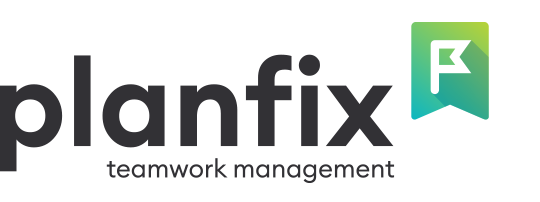
Project management is changing fast, thanks to new tech, different ways of working, and the ups and downs of the global economy. In 2024, keeping up with the latest trends was the key to staying on top. This article looks at the big changes, what’s were in the scene, and how managers adjusted to these changes to run projects more smoothly and effectively.
What’s was Driving Changes in Project Management Last Year
Changes in project management aren’t just random; they come from big shifts happening around the world. Here’s what’s was making waves in the industry past year:
- Tech on the Rise: Things like AI, machine learning, and automation are totally changing the game for how teams get stuff done. These tools helped streamline the boring stuff and gave insights that helped make better choices. Using these tech tools cuts down the time spent on everyday tasks, freeing up project managers to tackle the trickier parts of their projects.
- Working from Anywhere: The pandemic changed the game on how we work, making remote and hybrid setups the new norm. This has turned managing spread-out teams into a basic skill for today’s project managers. Adapting to this means rethinking how we communicate and work together, and tweaking old project management setups to fit these new work styles.
- Economic Ups and Downs: With economies around the world being unpredictable, project managers have to do more with less. Balancing tight budgets while still delivering value is tough, and it’s something many are still figuring out. With economic changes always around the corner, managers need flexible budgeting strategies that can shift as needed.
- Green and Responsible Practices: Thinking about the environment and social responsibility is a must now. Everyone expected businesses to put sustainable practices into their projects. This affected everything from how projects are planned to the materials and methods used, which now need to be eco-friendly and socially responsible.
Knowing these driving forces helped project managers tweak their approaches to meet today’s needs. For instance, leveraged technology like scheduled reports and email automation not only saved time but also ensured that team members and stakeholders received timely updates. That kept communication clear and transparency high, which is essential for keeping projects moving in a fast-paced environment. By getting on board with these tools and trends, companies set themselves up for more success in 2024 and beyond.
Top Trends in 2025 of Project Management
Let’s take a closer look at what’s shaped the world of project management this year and how these trends have made an impact.
AI at the Forefront of Project Management
AI is no longer just a cool concept, it’s actively transforming the way we manage projects. For example, by understanding how scripts work in project management, these tools automate routine jobs, flag potential risks, and even suggest fixes before problems arise. AI analyzes historical data to forecast delays, making it a powerful assistant for keeping projects on track. Whether it’s helping with daily task management or spotting gaps in schedules, AI is becoming an essential part of every project manager’s toolkit.
Navigating Hybrid Work Models
Hybrid work setups — where people juggle between home and office — are now the norm. To keep everyone on the same page, project managers lean on tools that make collaboration effortless. But beyond apps and chat channels, it’s about creating a sense of connection. Managers were focused on engaging remote team members in discussions and decision-making to keep the entire team motivated and working toward shared goals.
The Soft Skills Factor
Technical know-how is great, but in 2025, soft skills are the real game-changers. Project managers are stepped up as leaders, communicators, and problem-solvers. It’s all about being adaptable, understanding team dynamics, and steering projects smoothly even when things get unpredictable. Companies are also invested in training programs to help teams grow these vital skills because they know it’s the secret sauce for project success.
Agile for All
Agile methods aren’t just for IT anymore; they’re branching out into fields like marketing, healthcare, and even construction. Why? Because the principles of working in sprints and gathering constant feedback can fit almost any kind of project. For example, when creating a project template, Agile’s structure can make sure every step is clear, adaptable, and efficient. Whether you’re managing a marketing campaign or a building project, Agile is proving to be the go-to approach.

Smarter Decisions with Data
Big data plays a huge role in modern project management. By crunching numbers from past projects and monitoring real-time metrics, managers can make informed decisions rather than guessing. Want to check if you’re sticking to your budget or timelines? Advanced analytics can instantly pull up those insights, making sure your decisions are backed by facts, not just gut feelings.
Sustainability Takes Center Stage
Sustainability is now a must-have in project plans. Whether it’s using greener materials or cutting down on waste, teams are building eco-conscious strategies right into their templates. This isn’t just good for the planet—it’s a win for a company’s reputation too. More and more businesses are seeing that sustainable practices aren’t just ethical; they’re smart.
Learning Never Stops
In project management, staying updated is the name of the game. Certifications and continuous learning programs have helped professionals stay sharp. Whether it’s brushing up on how things work in project management or learning new frameworks, these programs ensure that managers are equipped to handle whatever comes their way.
Staying Secure
With so many digital tools involved, keeping data safe was more critical than ever. Managers made cybersecurity a top priority—training teams on avoiding scams, using secure tools, and safeguarding sensitive information. It’s all about keeping projects running smoothly without worrying about threats lurking in the background.
Challenges and Opportunities in 2025
As project management keeps evolving, it’s all about knowing the hurdles ahead and spotting the opportunities that can give your organization an edge. Let’s dive into some of the big challenges and chances that project managers have encountered this year.
Challenges
We can’t talk about challenges without first admitting how tricky it is to bring new tech and methods into systems we’re already using. Here are the main pain points:
- Adopting New Technologies: Tools like AI bring huge perks, but getting them to work seamlessly with your current setup was both expensive and overwhelming.
- Keeping Teams Connected: Hybrid work sounds great, but it takes a lot of effort to maintain that team spirit when everyone’s spread out.
- Hitting ESG Goals: Finding the balance between being sustainable and staying profitable is still a big puzzle.
Most businesses navigated these issues by crafting clear strategies and committing to constant improvement. It’s not easy, but the results were worth it.

Opportunities
Now, here’s the good news: every challenge comes with a silver lining. For project managers who were open to change, there were plenty of opportunities to seize:
- Boosted Efficiency: Automation and AI have handled repetitive tasks, letting you focus on the bigger picture — like creating modern reports that provide actionable insights.
- Access to Global Talent: Remote work lets you tap into a world of skills and perspectives, opening up hiring possibilities like never before.
- Building Resilience: Those who adapted to these trends in the past year will be better prepared to handle whatever uncertainties lie ahead.
Recognizing and capitalizing on these opportunities has set project managers up for big wins in 2025 and beyond.
Preparing for Trends Beyond 2025
Looking ahead to 2026 and beyond, it’s clear that the best project managers are the ones who plan ahead. Preparing for future trends doesn’t just help you tackle what’s coming in 2025; it also sets you up for long-term success.
- Focus on Training and Growth: Encourage your team to stay sharp by attending workshops and earning certifications. Not only will they improve their skills, but your projects will benefit from cutting-edge tools and methods, like e-mail tracking for smarter communication.
- Choose Smart Tools: There’s no shortage of new tech, so picking the right ones is key. Look for tools that meet your team’s current needs and are flexible enough to grow with you. Modern reports platforms, AI-powered analytics, and hybrid work tools are great places to start.
- Embrace Change: Create a workplace culture where adaptability and innovation are second nature. This means being open to experimenting with new approaches and learning from the results.
- Upgrade Communication: With teams spread across the globe, strong communication strategies are a must. Regular check-ins and accessible communication channels help everyone stay aligned and feel like part of the team.
- Think Sustainably: Sustainability isn’t just a buzzword—it’s a necessity. From using eco-friendly materials to teaching your team to make long-term decisions, integrating sustainability into every part of your process is crucial.
- Strengthen Cybersecurity: More digital tools mean more risks. Keep your cybersecurity measures up to date, train your team on best practices, and run regular audits to stay ahead of threats.
By tackling these areas, you’ll not only be ready for the challenges of 2025 but also set your team up for lasting success in a fast-changing world. Staying proactive is the key to keeping your projects on top.
2024 was an exciting year in project management, bursting with fresh innovations and evolving priorities. Whether it’s the adoption of AI tools, embracing hybrid work models, focusing on sustainability, or employing data-driven strategies, the trends we’ve unpacked here really showcase how dynamic this field is.
For project managers and their teams, it’s clear: if you want to stay ahead, you’ve got to roll with the changes, upskill, and make the most of cutting-edge tools. Doing this not only puts you on track for project success but also positions you as a leader setting future standards. Get ready to tackle the challenges of 2025 with Planfix and stay at the forefront of project management!

